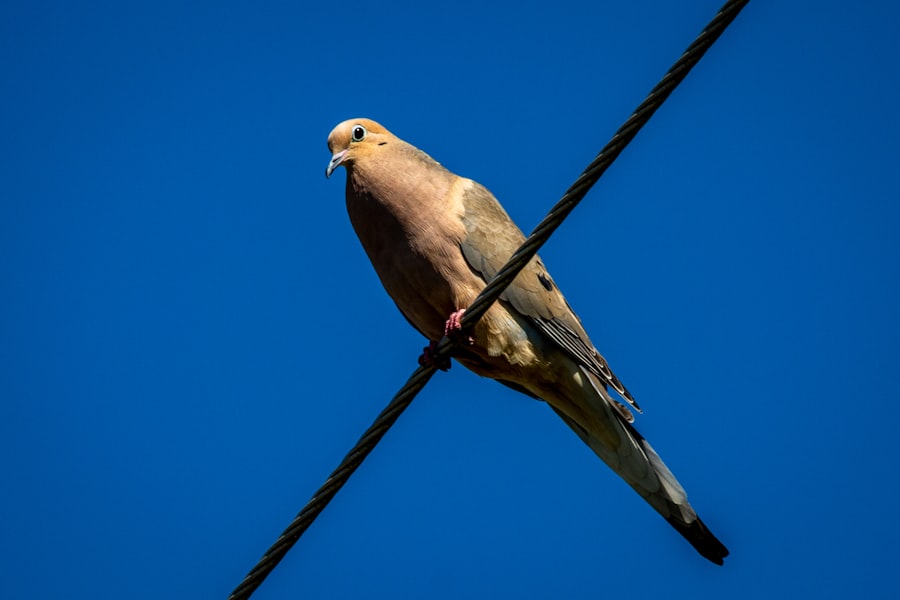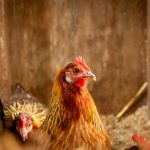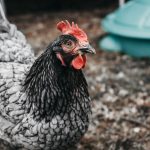Keeping chickens offers numerous advantages for individuals and households. These birds serve as effective natural pest controllers, consuming insects, slugs, and other garden pests, thereby reducing the need for chemical pesticides. Chickens also produce nutrient-rich droppings that can be used as organic fertilizer, containing essential elements like nitrogen, phosphorus, and potassium for plant growth.
Backyard chicken keeping provides a sustainable source of fresh eggs, often considered superior in quality to commercially produced eggs due to the birds’ natural diet and living conditions. For those interested in raising their own food, chickens can also be a cost-effective source of meat. Beyond their practical benefits, chickens can be entertaining and companionable pets, each with unique personalities and behaviors.
Their presence can add an enjoyable dimension to daily life for many chicken keepers. In summary, keeping chickens offers multiple benefits, including natural pest management, organic fertilizer production, sustainable food sources, and the potential for companionship and entertainment.
Table of Contents
- 1 Choosing the Right Breeds for Small Flocks
- 2 Housing and Coop Requirements
- 3 Feeding and Nutrition for Healthy Chickens
- 4 Health and Disease Management
- 5 Egg Production and Care
- 6 Integrating Chickens into a Sustainable Lifestyle
- 7 FAQs
- 7.1 What are the benefits of keeping chickens and tending small flocks?
- 7.2 What are some important considerations when keeping chickens?
- 7.3 What are some common breeds of chickens for small flocks?
- 7.4 What are some common health issues for chickens and how can they be prevented?
- 7.5 What are some tips for raising chickens in a small backyard or urban environment?
Key Takeaways
- Keeping chickens provides a sustainable source of fresh eggs and meat, natural pest control, and fertilizer for gardens.
- When choosing breeds for small flocks, consider factors such as egg production, temperament, and climate adaptability.
- Housing and coop requirements for chickens include protection from predators, adequate space, and proper ventilation.
- Feeding chickens a balanced diet with access to fresh water and grit for digestion is essential for their health and egg production.
- Regular health checks, vaccination, and proper sanitation are crucial for preventing diseases and maintaining a healthy flock.
- Proper care and handling of eggs, including cleaning and storage, can ensure a safe and high-quality product for consumption.
- Integrating chickens into a sustainable lifestyle can contribute to self-sufficiency, waste reduction, and a closer connection to food sources.
Choosing the Right Breeds for Small Flocks
Climate and Environment
The climate and environment in which the chickens will be kept play a crucial role in determining the best breed for your needs. Some breeds thrive in cold climates, while others excel in warmer environments.
Purpose and Productivity
The purpose of keeping chickens is another essential consideration. Are you looking for high egg production, meat production, or a combination of both? Different breeds specialize in these areas, so it’s vital to choose a breed that aligns with your goals.
Temperament and Space
The temperament of the breed is also crucial, as some chickens are more docile and friendly, making them suitable for families with children or those who want to interact with their chickens. Others are more independent and less tolerant of handling. Additionally, the available space for the chickens must be considered, as some breeds require more room to roam and forage, while others are better suited to confinement.
By carefully considering these factors, you can make an informed decision when choosing the right breeds for your small flock.
Housing and Coop Requirements
Proper housing and coop requirements are essential for keeping chickens healthy and safe. The coop should provide protection from predators such as foxes, raccoons, and birds of prey. It should also provide shelter from the elements, including rain, wind, and extreme temperatures.
The coop should be well-ventilated to prevent moisture buildup and allow for fresh air circulation. Additionally, it should be easy to clean and maintain to ensure a hygienic living environment for the chickens. The coop should also provide enough space for the chickens to roost comfortably and move around freely.
The general rule of thumb is to provide at least 2-3 square feet of space per chicken inside the coop, and 8-10 square feet per chicken in an outdoor run. The coop should also include nesting boxes for egg-laying hens, as well as perches for roosting at night. It’s important to use high-quality materials that are durable and predator-proof when building the coop.
In conclusion, proper housing and coop requirements are essential for providing a safe and comfortable living environment for chickens. The coop should provide protection from predators and the elements, be well-ventilated, easy to clean and maintain, and provide enough space for the chickens to roost and move around freely.
Feeding and Nutrition for Healthy Chickens
Feeding and nutrition play a crucial role in maintaining the health and well-being of chickens. A balanced diet is essential for egg production, growth, and overall health. Chickens require a diet that is high in protein, vitamins, and minerals to support their growth and egg-laying capabilities.
A good quality commercial feed that is specifically formulated for chickens is a convenient option for providing essential nutrients. Additionally, supplementing their diet with kitchen scraps, fruits, vegetables, and grains can provide additional nutrients and variety. It’s important to provide access to clean water at all times to prevent dehydration and support digestion.
Chickens also require access to grit or small stones to aid in digestion by grinding up their food in their gizzards. Additionally, providing access to free-range or pasture foraging can allow chickens to supplement their diet with insects, grasses, and other natural foods. In conclusion, feeding and nutrition play a crucial role in maintaining the health and well-being of chickens.
A balanced diet that is high in protein, vitamins, and minerals is essential for egg production, growth, and overall health. Providing access to clean water, grit, kitchen scraps, fruits, vegetables, grains, and free-range or pasture foraging can help ensure that chickens receive a well-rounded diet.
Health and Disease Management
Maintaining the health of your flock is essential for successful chicken keeping. Regular health checks should be conducted to monitor the overall well-being of the chickens. Look out for signs of illness such as lethargy, loss of appetite, abnormal droppings, respiratory issues, or unusual behavior.
It’s important to quarantine any sick or injured birds to prevent the spread of disease within the flock. Preventative measures such as vaccination against common diseases like Marek’s disease and Newcastle disease can help protect your flock from potential outbreaks. Additionally, practicing good biosecurity measures such as limiting exposure to wild birds and other poultry flocks can help reduce the risk of disease transmission.
Proper sanitation and hygiene practices are also crucial for disease management. Keep the coop clean by regularly removing droppings and soiled bedding. Provide clean water sources and regularly clean feeders and waterers to prevent contamination.
Additionally, practice good hand hygiene when handling chickens to prevent the spread of disease between flocks. In conclusion, maintaining the health of your flock through regular health checks, preventative measures such as vaccination and biosecurity practices, as well as proper sanitation and hygiene practices are essential for successful chicken keeping.
Egg Production and Care

Creating a Comfortable Environment
Firstly, provide a comfortable and stress-free environment for your hens by ensuring they have enough space in the coop and outdoor run. Stress can negatively impact egg production.
Nutrition for Egg-Laying
Additionally, provide a balanced diet that is high in protein to support egg-laying capabilities. Ensure that laying hens have access to calcium through oyster shells or crushed eggshells to support strong eggshell formation.
Egg Collection and Storage
Collect eggs regularly to prevent hens from developing a habit of egg-eating or broodiness. Proper storage of eggs is also important to maintain their freshness and quality. Store eggs in a cool place away from strong odors or direct sunlight. Eggs should be cleaned if soiled but not washed until just before use to preserve their natural protective coating.
In conclusion, providing proper care and management for laying hens through a comfortable environment, a balanced diet high in protein and calcium, regular egg collection, and proper egg storage is essential for ensuring a consistent supply of fresh eggs.
Integrating Chickens into a Sustainable Lifestyle
Integrating chickens into a sustainable lifestyle can have numerous benefits for both the environment and your household. Chickens can help reduce food waste by consuming kitchen scraps and leftovers that would otherwise end up in landfills. Their droppings can be used as high-quality fertilizer to enrich the soil in gardens or agricultural fields.
Chickens also contribute to sustainable food production by providing a source of fresh eggs and meat that is free from harmful chemicals or additives often found in commercial products. Raising your own food can reduce reliance on industrial agriculture systems that may have negative environmental impacts. Furthermore, integrating chickens into a sustainable lifestyle can promote self-sufficiency by providing a source of food that is produced locally and sustainably.
It can also be a valuable educational experience for children or those interested in learning about where their food comes from. In conclusion, integrating chickens into a sustainable lifestyle can have numerous benefits including reducing food waste, providing high-quality fertilizer, contributing to sustainable food production, promoting self-sufficiency, and providing an educational experience about food production.
If you’re interested in keeping chickens and tending to small flocks, you may also want to check out this article on what kind of coop is best for chickens. It provides valuable information on the different types of coops available and how to choose the best one for your feathered friends.
FAQs
What are the benefits of keeping chickens and tending small flocks?
Keeping chickens and tending small flocks can provide a sustainable source of fresh eggs, natural pest control for gardens, and a source of organic fertilizer for plants.
What are some important considerations when keeping chickens?
Important considerations when keeping chickens include providing adequate shelter, access to fresh water and food, and protection from predators. It’s also important to consider local regulations and ordinances regarding keeping chickens.
What are some common breeds of chickens for small flocks?
Common breeds of chickens for small flocks include Rhode Island Reds, Plymouth Rocks, and Leghorns. These breeds are known for their egg-laying abilities and suitability for backyard environments.
What are some common health issues for chickens and how can they be prevented?
Common health issues for chickens include parasites, respiratory infections, and egg-laying problems. These can be prevented by providing a clean and dry living environment, regular health checks, and access to a balanced diet.
What are some tips for raising chickens in a small backyard or urban environment?
Tips for raising chickens in a small backyard or urban environment include providing adequate space for the chickens to roam, minimizing noise and odor, and being mindful of neighbors’ concerns. It’s also important to check local regulations and ordinances regarding keeping chickens in urban areas.
Meet Walter, the feathered-friend fanatic of Florida! Nestled in the sunshine state, Walter struts through life with his feathered companions, clucking his way to happiness. With a coop that’s fancier than a five-star hotel, he’s the Don Juan of the chicken world. When he’s not teaching his hens to do the cha-cha, you’ll find him in a heated debate with his prized rooster, Sir Clucks-a-Lot. Walter’s poultry passion is no yolk; he’s the sunny-side-up guy you never knew you needed in your flock of friends!







